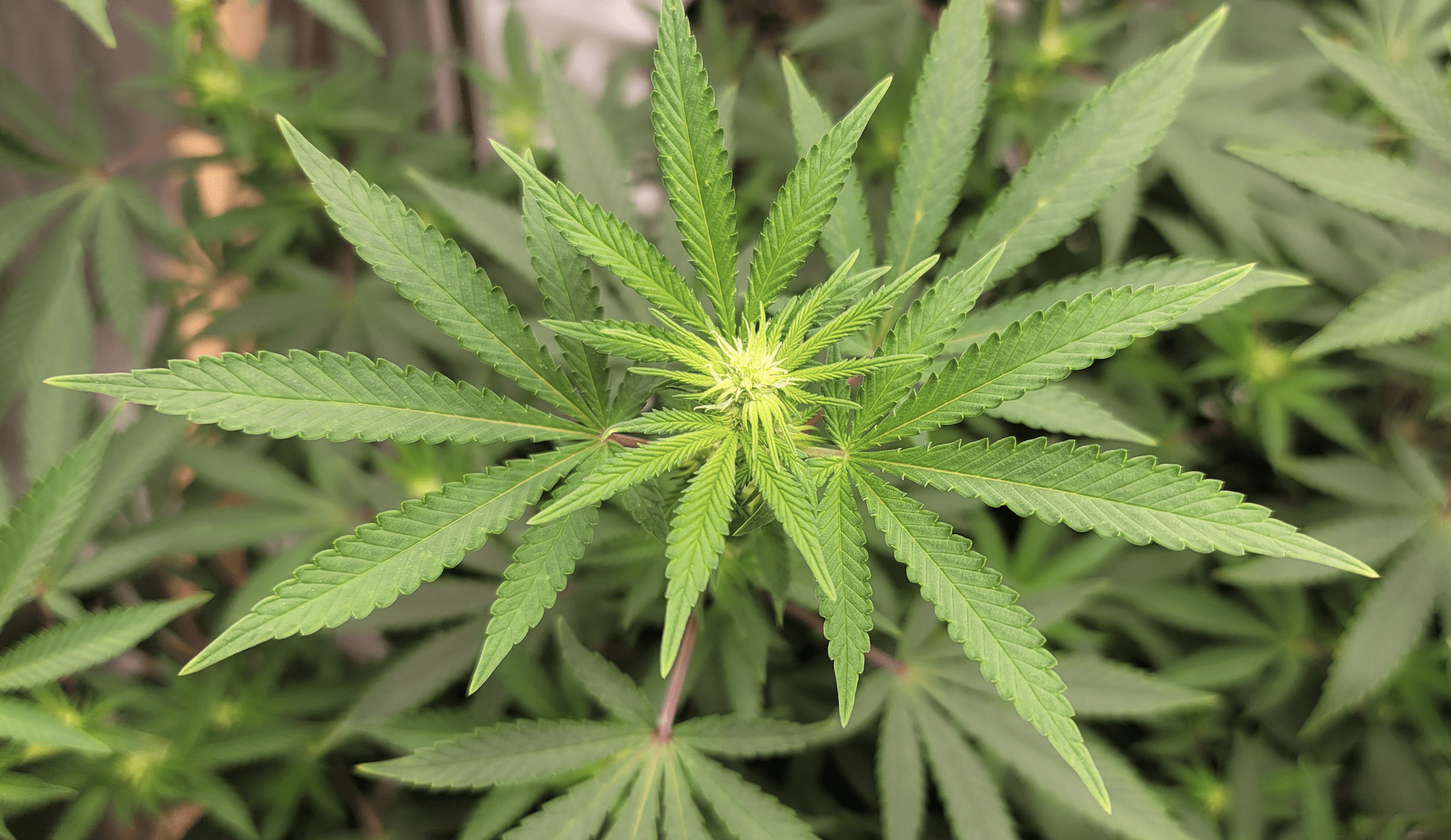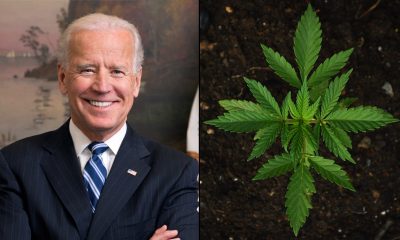Politics
DOJ Official Details Plans To Provide Presidential Marijuana Pardon Certificates Through 10-Minute Application Process

U.S. Pardon Attorney Elizabeth Oyer said on Tuesday that the Justice Department will soon give people the opportunity obtain certificates for presidential marijuana pardons through a soon-to-be-launched application process that they expect will only take 10 minutes to complete.
The official also weighed in on the fact that the President Joe Biden’s mass pardon excluded immigrant with citizenship status issues, saying it’s still possible for them to receive relief if they apply through the traditional, individualized clemency process.
During a panel discussion organized by Ohio State University’s Mortiz College of Law, Oyer talked about the practical and symbolic impact of the president’s cannabis clemency, the limitations of the relief, plans to certify eligible pardons and her office’s current priorities.
Oyer, who said over the summer that it was ultimately up to the president to facilitate large-scale cannabis clemency, emphasized that Biden’s recent pardon for roughly 6,500 Americans was “self-effectuating,” meaning that they were officially forgiven the moment that the proclamation was signed in early October.
But even so, the proclamation gave DOJ a directive to follow-up on the pardons with a certification process.
Oyer took a question from Marijuana Moment about the logistics and timing of the forthcoming clemency certification process, and she stressed that the office is “working on developing a very simple and very streamlined process for applications.”
However, “it sometimes turns out in government that making something simple takes longer than making it complicated and just implementing it as quickly as possible.”
She wasn’t able to say specifically when the applications—which will be available through an online form but can also be submitted via mail—will open. But she said it would be “very soon,” and her hope is that that “it will take no more than 10 minutes for most people to complete.”
“We are hoping that we can expedite the process for applicants and for our review by using a web-based platform, so we are working very closely with the Department of Justice’s IT department to develop and launch a web-based submission platform so that individuals can simply fill in their information online, click a button, submit the application and it’s done,” Oyer said. “That will also put the information into a format that makes it easier for us to quickly review and process these applications for certificates.”
“The final application, which is very far along in the process now, is likely going to be a one-pager which requires inclusion of some basic personal information—information about the date and court of conviction, there’ll be an attestation requiring the applicant to state that the information provided is truthful—and that’s pretty much it,” she said.
Earlier in the panel, Oyer made clear that while some people might stand to benefit from having such a certification, it’s not exactly necessary given that the formal forgiveness was automatic upon signing of the proclamation on October 6.
“You don’t need any further evidence or any action to be taken to effectuate the terms of the pardon,” she said. “However, the Office of the Pardon Attorney has been tasked under the president’s proclamation with coming up with a process for issuing certificates. So the certificate of pardon is just proof that your conviction has been pardoned under the terms of the proclamation.”
“You don’t need a certificate for a pardon to be effective—but individuals may want to obtain a certificate in order to have that proof in hand that they’ve been pardoned,” she added. “My guess is that many individuals are going to find that they don’t actually need a certificate, but other individuals may find that they run into obstacles and that having a certificate is helpful in achieving the full benefits of the pardons so that they can show someone a piece of paper saying, ‘yes, I had that conviction, but it’s been pardoned by the president.'”
The panel—which also involved University of Minnesota Law School Clemency Project Director JaneAnne Murray and Last Prisoner Project Executive Director and General Counsel Sarah Gersten—also touched on how advocates feel the president’s pardon proclamation should be expanded to include other groups, such as immigrants with citizenship status issues and those with cannabis sales convictions.
TODAY @ 12 PM EST, join us as we host a panel with @OSULawDEPC to break down everything you need to know about @potus' recent marijuana pardons. @OSU_Law https://t.co/yrfIEwFXY0 pic.twitter.com/5lA0GWc63e
— Last Prisoner Project (@lastprisonerprj) December 13, 2022
Oyer was asked whether there’s any “talk” within her office or at the White House about following up on the October action with another “blanket pardon” or fast-tracking individual clemency applications from undocumented people who were explicitly excluded under the president’s proclamation.
She replied that “any individual is always able to apply for a pardon under our traditional process for granting pardons—President Biden’s proclamation was in addition to the traditional process for considering pardons— and one thing that we consider in every case where an individual is seeking a pardon is individualized need for that type of relief.”
“So if an individual has a compelling need for a pardon in order to avoid a specific collateral consequence, such as potential removal from the United States or inability to reenter the country, then that is absolutely something that would be considered by the office on an individualized basis in connection with a pardon application,” the pardon attorney said.
Oyer recognized that the proclamation “was limited in scope to U.S. citizens and lawful permanent residents,” but she said she’d “encourage anyone who is suffering collateral consequences that could be ameliorated by granting a pardon to use our traditional pardon application and to apply for relief.”
Last month, the Congressional Research Service (CRS) released a report that outlined the various limitations of the president’s pardons, including the fact that he doesn’t have authority to grant relief to people with state-level convictions and the exclusion of non-citizens in the proclamation.
Nine congressional lawmakers sent a letter to Biden last month, imploring him to extend his pardons include immigrants who have citizenship status issues. They are also urged him to “prioritize” decriminalization or descheduling.
Rep. Alexandria Ocasio-Cortez (D-NY) previously called for an expansion of the president’s pardons, stressing the importance of having a Democratic Party that proactively stands up for Latino communities, including the immigrant population. Part of that means enacting inclusive policies, she said, which was a missing element of the president’s mass cannabis pardon.
Last month, more than 130 immigrations and civil rights organizations sent a letter to Biden, similarly imploring him to extend his marijuana possession pardon proclamation to anyone regardless of immigration status.
Oyer was also asked about what might need to happen for people who commit federal possession offenses after the proclamation and whether that might also necessitate another round of pardons.
Notably, she responded by saying that it “remains to be seen whether [cannabis possession] will still be widely charged or not in light of the action that the president took,” referencing points other panelists made about the “symbolic value” of Biden’s action that could potentially affect future prosecutions.
“I think it’s really hard to deny that it does have a huge symbolic value,” she said. “I don’t know what the future of marijuana possession will look like in the in the federal system—I’m not in a prosecuting office within the Department of Justice, so I don’t really have a window into that—but I do think that, certainly, the statement that the president made by issuing this proclamation, that would be relevant to the discussion of what that future looks like.”
During Tuesday’s panel, the pardon attorney also spoke more broadly on her office’s clemency priorities. She said that while she’s “not going to make predictions about what the president may or may not do,” she could provide insight into the types of individualized cases that are getting particular attention—and “drug cases are absolutely it.”
“We have thousands of applications for commutation of sentence in drug cases, and the top priorities for us currently are the very many cases in which there is a clear indication that the sentence would be lower today as a result of the passage of the First Step Act,” a bipartisan sentencing reform law that was enacted under the Trump administration.
“We’re also looking closely at marijuana cases. We’re looking closely at crack cocaine cases,” she added. “I would say that, across the board, drug cases are at the top priority for the office’s review right now.”
Another question that the pardon attorney fielded concerned whether her office intends to collect demographic data on people who’ve applied for pardons and commutations, which is something the U.S. Sentencing Commission provided a brief overview of for the presidential mass marijuana pardons shortly after that action was taken.
Oyer said that while her office has not typically engaged in that type of data collection, it is planning to do so moving forward.
“It’s an area of interest in me because I think understanding the impact that different policies have on different demographics of people is very important,” she said. “I’ve had some discussions with experts on this issue, including the [DOJ’s] chief statistician—and it seems that the prevailing view now is that it’s better to have the data than not to have the data. So we do plan to collect that type of data and hope that it will be useful in analyzing the effect that this action has had.”
Besides issuing a mass pardon, Biden also directed an administrative review into federal marijuana scheduling, and other officials have consistently said that they plan to carry out that review and deliver recommendations in a timely fashion.
U.S. Health and Human Services (HHS) Secretary Xavier Becerra shared a Marijuana Moment post about the scheduling review process (at 4:20 PM ET, no less) last week. He’s among those key officials who will play a central role in the review.
Separately, the White House drug czar said recently that that the president’s action was “historic,” adding that there are “clearly” medical benefits of cannabis.
Like HHS, DOJ has similarly committed to quickly carrying out the separate scheduling review the president directed, which could result in a recommendation to place cannabis in a lower schedule or remove it altogether, effectively legalizing the plant under federal law.
A series of polls have shown that Americans strongly support the president’s pardon action, and they also don’t think that marijuana should be federally classified as a Schedule I drug.
Photo courtesy of Mike Latimer.
















